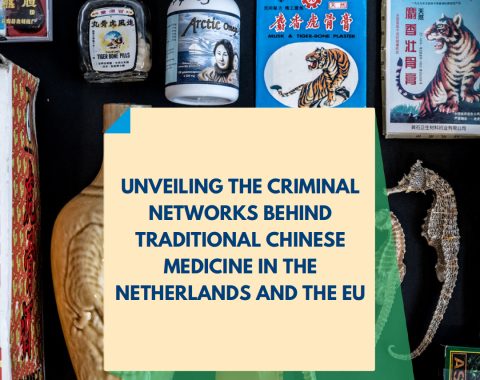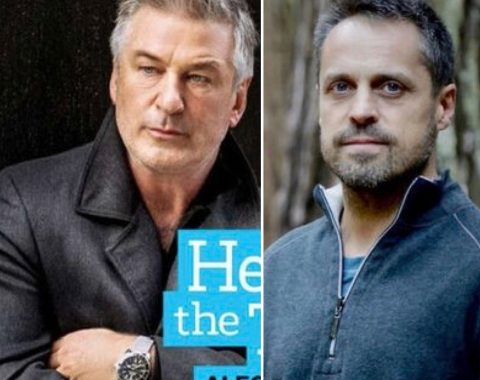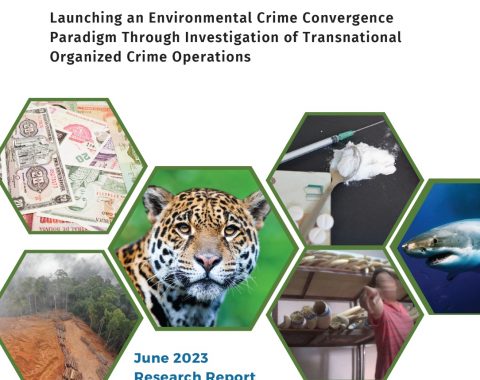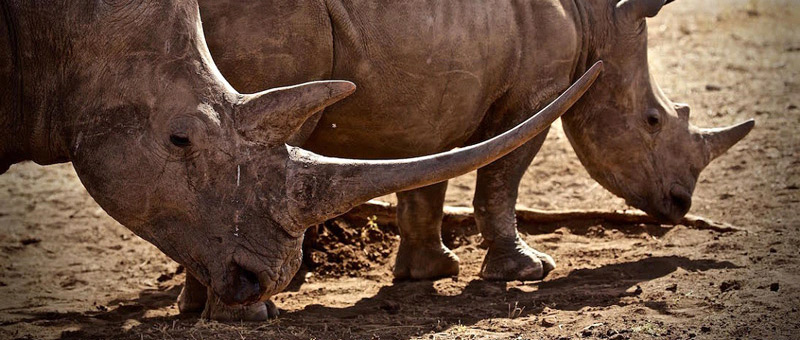Background:
Wildlife Justice Commission (WJC), an operational partner of Elephant Action League, is an independent organization that works to expose and disrupt criminal networks responsible for transnational, organized wildlife crime. Their team of wildlife crime specialist work to ensure that wildlife criminals are prosecuted by national authorities. WJC creates a “Map of Facts” at the end of each case file to expose how the criminal networks are working and what is know about the key perpetrators. Before the “Map of Facts” is released to relevant state authorities, it’s reviewed by an independent Accountability Panel to ensure accuracy.
Investigation Overview:
During a year long investigation into wildlife trafficking hub Nhi Khe, Viet Nam, WJC investigators observed US$53.1 million wildlife parts being trafficked through criminal networks consisting of 51 individuals. The wildlife parts were from up to 907 elephants, 579 rhinos, 225 tigers and other endangered species including pangolin, bear, hawksbill turtles and helmeted hornbills. WJC found that Nhi Khe has expanded as a transnational trading hub thanks to the convenience of social media platforms like WeChat, to target Chinese buyers, and Facebook to target buyers from South East Asia and others. The investigation also found 17 Chinese bank accounts were being used by traffickers to receive payment from their Chinese buyers.
Despite the overwhelming amount of evidence presented to Vietnamese law enforcement authorities,and extensive outreach and engagement to international stakeholders, the Vietnamese government still has not taken forceful action to shut down this criminal network. WJC acknowledges that Vietnamese authorities have taken some steps to address the illegal open trade activity in Nhi Khe, but state that behind closed doors the key traders are still active. It has also been found that these crimes are being displaced to neighboring locations near Nhi Khe and north of Hanoi.
Public Hearing Description:
WJC always present their investigative findings to national authorities first, and attempt to engage and influence them through a national dialogue process. However, if these national authorities do not translate their newfound information into sufficient action to disrupt the criminal networks, then WJC holds a public hearing. This public hearing is a mechanism designed to help activate justice once all other avenue have been explored and unsuccessful. Over this two day hearing, evidence from the investigation will be presented for validation with experts and witnesses, to an impartial panel of five international experts drawn from the Accountability Panel.
The purpose of this hearing is to present evidence in public where it cannot be ignored and hopefully persuade relevant governments to act. If the panel decided the presented evidence is sufficient, they will validate the findings and put forward their recommendations.
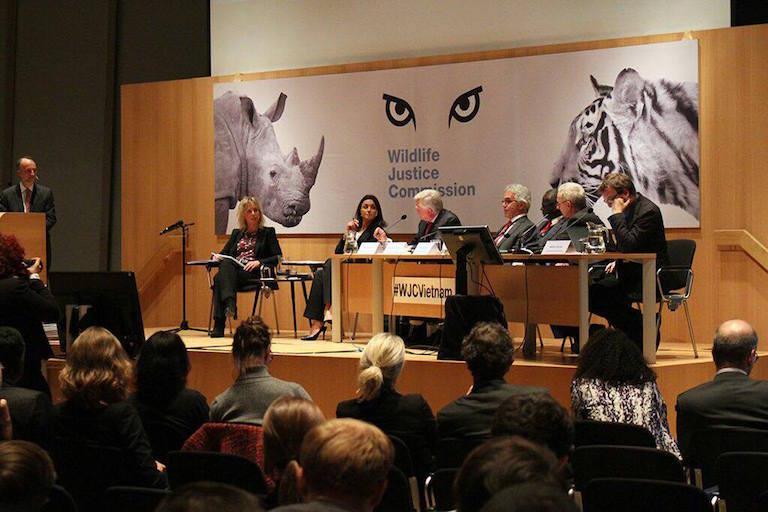
Because of Vietnamese authorities’ absence of action, WJC decided to hold a public hearing to present their evidence in a global public forum to validate their findings and recommend concrete action to the Vietnamese authorities. The Wildlife Justice Commission held its first ever Public Hearing on November 14 & 15, 2016 at the Peace Palace in The Hague, the Netherlands.
The accountability panel was made up of the following international experts:
- Professor Edgardo Buscaglia: Senior Scholar in Law and Economics at Columbia University, Economic Analysis of Complex Crimes Expert
- Diego García-Sayán: the former President of the Inter-American Court of Human Rights, former Minister of Foreign Affairs and former Minister of Justice of Peru
- Misha Glenny: award-winning journalist and historian
- Justice Philippe Kirsch: former President of the International Criminal Court
- Justice Isaac Lenaola: Justice of the Supreme Court of Kenya and Deputy Principal Judge of the East Africa Court of Justice
Recommendations:
The Panel noted deficiencies and on this basis recommended that Viet Nam takes specific actions in compliance with their international legal obligations. Amongst others, that the General Inspectorate Police use the information in the Map of Facts and its update to conduct an investigation targeting individuals and networks identified.
They also made recommendations to other branches of the Vietnamese government including:
- The establishment of a joint taskforce directed by the Office of Supreme Peoples’ Procuracy.
- That the Government Inspectorate Authority undertake a review of vulnerable posts and trafficking routes to devise realistic and effective mechanisms to counter and prevent corrupt practices linked to organised crime.
Of the 16 recommendations made, other highlights include:
- To establish a witness protection program and procedures to protect whistleblowers in cases of corruption and organised crime.
- To allocate law enforcement resources to detect illegal wildlife trade on social media networks such as Facebook and WeChat and sanctions individuals conducting such trade
- To use the information contained in the Map of Facts and its update to support intelligence gathering on syndicates involved in facilitating the illegal wildlife trade in, and from, Viet Nam.
- To liaise with the relevant Chinese law enforcement counterparts to co-ordinate the exchange of intelligence and information in relation to the identified criminal networks, including the use of Chinese bank accounts and other methods used to facilitate money laundering.
- That Viet Nam co-operate with international stakeholders and engage civil society networks as mandated by relevant international treaties to which Viet Nam is a party.
- That CITES Standing Committee consider the suspension of trade in protected species as a sanction for non-compliance of previous CITES decisions.
Finally, the Panel recommended that all parties to the relevant international treaties take appropriate measures in support of Viet Nam to combat and prevent transnational organized wildlife crime in compliance with their obligations.
The Accountability Panel validated the WJC’s investigative findings and Map of Facts by determining that Nhi Khe is, and continues to be, a major hub for wildlife crime in protected species.
https://wildlifejustice.org/independent-panel-confirms-immediate-action-vietnamese-government-required-shut-wildlife-trafficking-networks-viet-nam/


